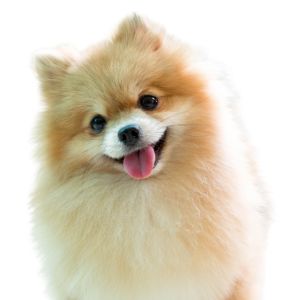
Menu

Clover
Pomeranian
Ref ID: #75- Gender: Male
- Age: 18 Weeks
- Location: Oklahoma
Puppy Specifications
- BreedPomeranian
- GenderMale
- Date of Birth04-10-2025
- Age18 Weeks
- ColorBrown
- Current WeightN/A
- Current TempN/A
- LocationOklahoma
- Reference ID75
- Registered ParentsYes
- Breeder CCCNo
- Parents OFA TestedNo
Meet the Parents

I’m Mom
Pomeranian
Registry: APRI
Weight: 5 lbs
OFA Tested: No

I’m Dad
Pomeranian
Registry: APRI
Weight: 3.5 lbs
OFA Tested: No
About The Pomeranian Breed

Weight:
3 - 7 lbs
Height:
6 - 7 inches
Lifespan:
12 - 16 years
Litter Size:
1 - 5
Size:
Small
Traits
Color Varieties
Characteristics
Breed Information
Lively, intelligent, and full of personality, the Pomeranian is a small companion breed best known for its fluffy double coat and fox-like face. Weighing only 3–7 pounds, this toy breed is portable yet confident, often showing a big-dog attitude despite its small stature. Pomeranians thrive as affectionate companions and adapt well to apartment living, provided they get enough daily exercise and interaction.
Descended from larger Arctic sled dogs, the Pomeranian was developed in the Pomerania region of present-day Poland and Germany. The breed gained fame in the 18th century when Queen Victoria of England became an enthusiastic breeder and exhibitor, helping shape the smaller Pomeranian we know today. The breed was officially recognized by the American Kennel Club (AKC) in 1888 and remains a popular choice for those seeking a compact, confident companion.
The Pomeranian was gradually reduced in size from its larger Spitz-type ancestors while retaining its signature thick coat and alert temperament. Breeders worked to enhance the breed’s distinctive appearance, plumed tail, expressive eyes, and abundant mane while also refining its lively, affectionate personality. This intentional development helped create a highly adaptable toy breed that excels as a companion and show dog.
Playful, intelligent, and often bold, the Pomeranian forms strong bonds with its family and enjoys being the center of attention. The breed’s natural curiosity and alertness make it an excellent watchdog, though it can be vocal without proper training. Pomeranians are generally good with children who know how to handle small dogs gently, and they do best with early socialization to prevent bossy or timid behaviors.
A comfortable indoor environment suits the Pomeranian best, as its small size makes it vulnerable to extreme temperatures and rough handling. Daily walks and active play sessions provide enough exercise for this energetic breed. Their thick double coat requires brushing several times a week to prevent matting and professional grooming every 4–6 weeks to maintain its volume and texture. Pomeranians thrive on companionship and enjoy being part of family life.
Frequently Asked Questions
Yes. Pomeranians are naturally alert and vocal, which makes them excellent watchdogs. However, without proper training, their barking can become excessive. Early socialization, consistent training, and plenty of mental stimulation can help manage this behavior.
Because they form strong bonds with their families, Pomeranians can develop separation anxiety if left alone for long periods. Providing interactive toys and a consistent routine can help, but they do best in homes where someone is around for much of the day.
House-training can take time due to the breed’s small size and independent nature. Consistency, positive reinforcement, and scheduled potty breaks make the process smoother. Many owners also find success using indoor potty pads or litter boxes.
Pricing & Inquiries
Have questions about this puppy or the adoption process? Fill out the form below or use the contact buttons at the top of the page.
Financing Options
Finance Your New puppy!
Have this puppy today for only
Plan Your Visit
Interested in meeting Clover? Please fill out the form below to schedule a visit.